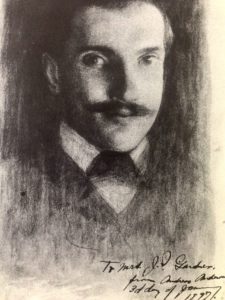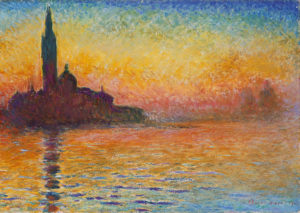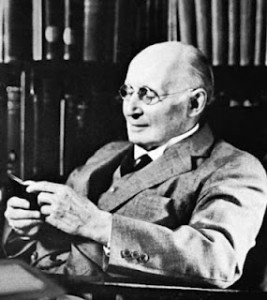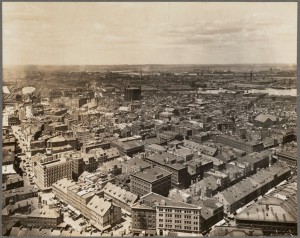To Lawrence Smith Butler
C/o Brown Shipley & Co.
123 Pall Mall, London, S.W.l
Venice, Italy. October 9, 1926
Your business address and the neat appearance of your type-written letter, involving an animate as well as an inanimate typewriter, open vistas of you in a new atmosphere. Are you working really hard and building Babylonian skyscrapers? I hope this will not prevent you from coming to see me—you will need a rest—and please don’t bring either the animate or the inanimate typewriter with you.
No, I have not seen “The Story of Philosophy” and have forgotten if they ever asked me for a photo. I now have been reproduced especially for reproduction by Swain & Co, New Bond Street, London, W. to which your friends the publishers can send for a portrait of me in my 60th year; it is not good, too much touched up, but will serve for the public. My real portrait is the drawing by Andreas Andersen.
P.S. Like a lady, I forgot the object of this letter until it was finished. Of course I shall be glad to read your journal of the trip round the world, but why should I, who am not a circumnavigator, write a preface for it? What should I say in it? However, if on seeing it I should be inspired, the thing might be done. This summer I have written a whole book—a little one—on the spur of the moment, thinking it would be merely a review of Dean Inge on “The Platonic tradition in English religious thought,” but it grew into an independent treatise of my own on how to become a saint without letting anybody know it. It is to be called “Platonism and the Spiritual life” and is very Indian. You may not like it all, because it is not specifically Christian, but I will send you a marked copy, where the orthodox pages shall have a little red cross at the top.
From The Letters of George Santayana: Book Three, 1921-1927. Cambridge, MA: The MIT Press, 2002.
Location of manuscript: The University Club, New York NY





